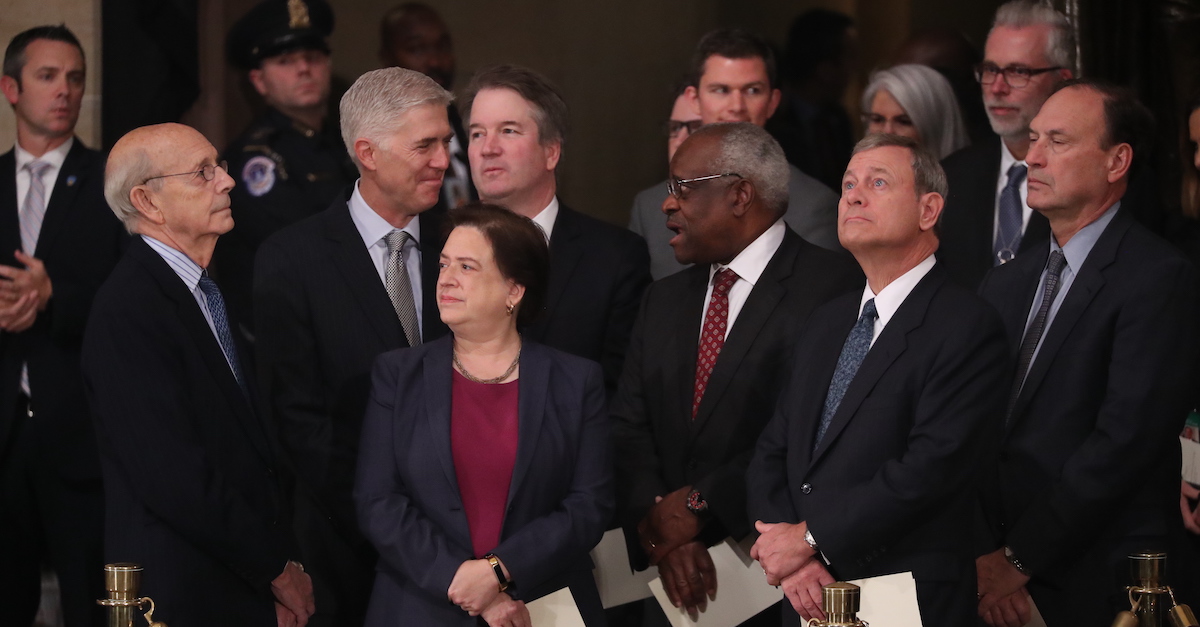
In a 6-3 decision, the U.S. Supreme Court on Monday ruled that employers who fire employees for being homosexual or transgender violate Title VII of the Civil Rights Act of 1964. The landmark ruling for LGBT rights, penned by Justice Neil Gorsuch, was predominantly grounded in an analysis of the statutory text which says it is unlawful for an employer to discriminate against any individual because of their “sex.” It was largely celebrated as a much-needed step in the right direction for egalitarian rights. The dissents, from Justice Samuel Alito (joined by Justice Clarence Thomas) and Justice Brett Kavanaugh were lampooned by attorneys as hypocritical and over-the-top.
The brunt of the criticism was aimed at Alito, whose 143-page dissent dwarfed the majority opinion in size and employed a far more zealous tone, while also accusing Gorsuch of employing a pseudo-textualist approach to the statute in order to reach a desired outcome.
“It is curious to see this argument in an opinion that purports to apply the purest and highest form of textualism because the argument effectively amends the statutory text,” Alito wrote. In defending his position, Alito cited to the book “Reading Law”–written by late Justice Antonin Scalia and attorney and lexicographer Bryan Garner–four separate times.
Garner on Monday clearly disagreed with Alito’s characterization of the majority, posting a Twitter video praising Gorsuch’s opinion.
“Gorsuch’s opinion, I thoroughly applaud as – well, I’d say it’s enlightened textualism,” Garner said.
Other critics of the conservative justice took a far harsher tone in pointing out the inconsistencies in Alito’s dissent.
“Alito says that ‘sex’ must be defined exactly the way that lawmakers understood that term in 1964. I’m skeptical he’ll apply that same rule to defining what counts as ‘arms’ when reading the Second Amendment,” wrote UCLA constitutional law professor Adam Winkler.
Kristen Clarke, the president and executive director of the Lawyers’ Committee on Civil Rights, said Alito’s dissent would ultimately define his legacy.
“Justice Alito issues 94+ page dissenting opinion joined by Thomas. Calls ruling a ‘radical decision.’ He includes an appendix of dictionary pages defining sex, and various federal forms and statutes that may be implicated by the ruling. His opposition today will define his legacy,” she wrote.
Attorney Andrew Fleischman pointed to a glaring flaw in Alito’s interpretation that sexuality and sex are easily distinguishable.
“Alito imagines that you could discriminate against gay people without knowing their biological sex. How would that work?” he wrote. “Alito relies preeetty heavily on this concession that it’s theoretically possible to have discrimination against sexual orientation without having discrimination against sex. But doesn’t grapple with how rare that would be.”
https://twitter.com/ASFleischman/status/1272537752542818304?s=20
It was noticed, however, that Alito referred to transgender plaintiffs by their preferred gender pronouns.
Kavanaugh’s dissent, though less strident in tone, was still a source of criticism. Much of the dissent focused on “ordinary meaning of the law.”
Kansas University Law School professor Corey Rayburn Yung said Kavanaugh’s purported textualism on the subject was actually well disguised “intentionalism.”
“Kavanaugh’s approach to find ‘ordinary meaning’ is very much a top-down one. The public, employees, plaintiffs, etc. are all missing. And when he interprets the actions of gov’t agencies, he does so in a manner that infers intentions and doesn’t address any text,” he wrote.
“Text and intentions, of course, are intertwined. Evidence of intention can adjust how we read text. And text can tell us about intentions. But Kavanaugh’s approach, despite calling it a search for ‘ordinary meaning’ seems like largely focused on intentions. So, despite pages of his dissent extolling the wonders of the quest for ‘ordinary meaning,’ Kavanaugh appears to be an intentionalist in textualist clothing.”
https://twitter.com/CoreyRYung/status/1272569050502246401?s=20
https://twitter.com/CoreyRYung/status/1272569600669036549?s=20
Kavanaugh did write, however, that despite his concerns about SCOTUS’s “transgression” against the separation of powers, Monday decision represented an “important victory” for the LGBT community.
[image via Jonathan Ernst – Pool/Getty Images]